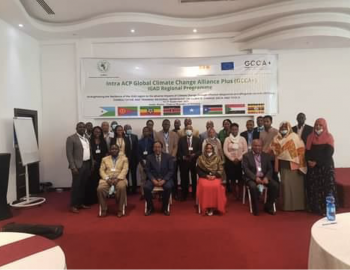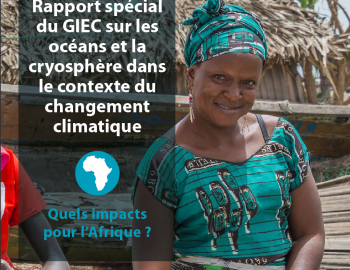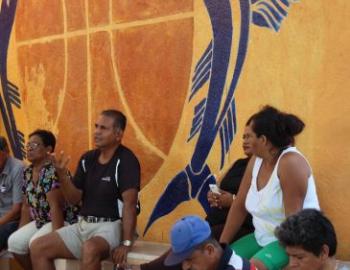REPORT: Reducing Tropical Deforestation and the Protection of Ecosystem Services to Support Food Security in Southwest Cameroon
REPORT: Reducing Tropical Deforestation and the Protection of Ecosystem Services to Support Food Security in Southwest Cameroon
The coastal forests of Cameroon are being rapidly degraded, in large part by shifting (“slash and burn”) cultivation. Such land-use change is an important driver of regional climate change in the Congo River Basin of Central Africa. Financial incentives to reduce emissions from deforestation and forest degradation (REDD) in such carbon rich ecosystems are being promoted to stem deforestation. However, REDD faces several political and technical challenges, including concerns over national sovereignty and land rights of forest users; the establishment of appropriate deforestation baselines; and negotiating the myriad tradeoffs between maintaining terrestrial carbon sinks, achieving food security through traditional food production practices, and the provision of ecosystem services for sustainable livelihoods.
This paper, Reducing Tropical Deforestation and the Protection of Ecosystem Services to Support Food Security in Southwest Cameroon, carried out an ecological and socio-economic evaluation including a system dynamic model using data collected from 131 subsistence agro-forest systems selected within the support zones of the Korup National Park and Douala-Edea Reserve. It aimed to reconcile levels of deforestation and degradation as well as the economic value of the produce and carbon stocks therein. Preliminary results show that annual subsistence agro-forest system was the most detrimental and less diverse compared to the biennial and perennial systems. Trees left standing in farms were either mostly priced timber species or providing NTFPs. The threshold limit of 50% forest canopy opening will guarantee better economic returns and the provision of ecosystem services in the long-term, minimum compliance value of US $10.00 per t/C of REDD might not be enough to entice farmers to halt deforestation given present environmental, economic and social conditions. Need to encourage perennial subsistence agroforestry systems and optimal incentive mix to change farmer behavior.
Further reading:
This project and publication has been produced as part of the START call for research on the theme of ‘Climate Change, Agriculture and Food Security’ in Africa, with an emphasis on the sustainability of ecosystem services in Africa. Objectives of this call are to commission high quality, independent, policy-relevant and credible research to support policy making for sustainable development in the region, to build the capacities of regional research partners to conduct high level research and to create a platform for knowledge sharing at the regional level. The funding has been provided by US National Science Foundation, Climate Change, Agriculture and Food Security (CCAFS) and CDKN.
START homepage: START
Research call information: Regional Research Call – Africa
START projects:
- Safety Nets Simplified: Simulated Decision-Making in Volatile Developing Economies
- Management of Ecosystem Services of the Forests of Southwest Nigeria in Support of Rural livelihoods and Food Security
- Sustainable Farmland management in the context of climate change in inland valleys of Southern Benin
- Changes in Tree Reproductive Phenology: Causes and Implications in and around Budongo Forest Reserve, Uganda
- Impact of Climate Change on Water Resources, Agriculture and Food Security in the Ethiopian Rift Valley: Risk Assessment and Adaptation Strategies for Sustainable Ecosystem Services
- Improving Seasonal Forecast Information for Managing On-farm Decisions
- Integrating Indigenous Knowledge and Scientific Methods for Flood Risk Analyses, Responses and Adaptation in Rural Coastal Communities in Nigeria
- Community-based management of ecosystems and natural resources for the improvement of rural livelihoods and food security in the Nigerian Savannah
- Engaging farmers and climatologists in Adaptation to climate variability and change in the Okavango Delta of Botswana
- The role of Urban and peri-urban agriculture in enhancing food security and climate change resilience in East and West African Cities
- Assessing Adaptation Responses by Smallholder Farmers in Northern Ghana to Climate Change and Biodiversity Loss
- The Impact of Climate Change on Food Security Among Coastal Communities of Keiskamma, in the Eastern Cape, South Africa
- Sensitivity of Coastal Lagoon Ecosystems to Climate and Related Global Changes: Developing a North African Lagoons Network



